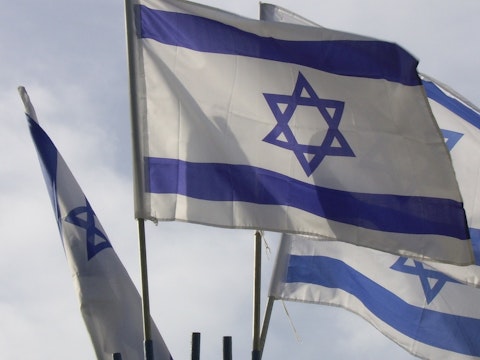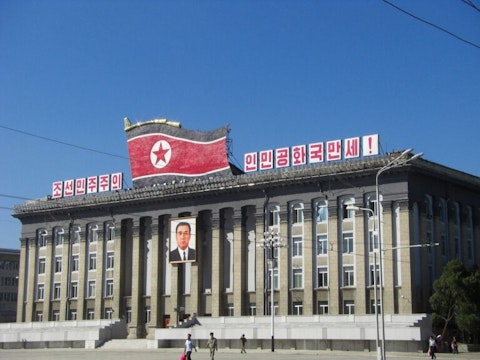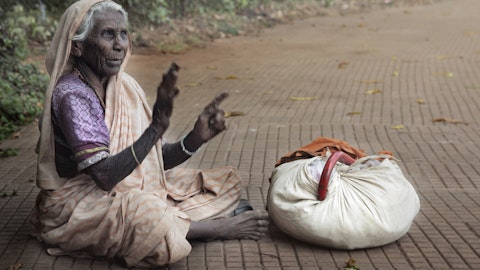In this article, we will take a look at the top 30 most hated countries in the world.
Efforts have been made to promote the expression “hatred must end” since it breeds toxicity and draws negative energy. Although hatred may be lessened, it is a fact of life. And countries are not exempt from that! People can hate countries just as much as they hate other people. For what reasons? The reasons can vary from person to person. They can be based on a personal experience, like when one traveled to that country and had a bad experience; they can also be based on cultural reasons, like when that person lives in a nation that was previously invaded by the country they despise; or they can simply be based on the fact that the rest of the world despises that country and they join the bandwagon. There are countless factors that can contribute to our hatred of a country.
For instance, Naim categorized the reasons why America is hated the most. According to him, the most common manifestations of anti-Americanism are generally a mishmash of issues—it has five sorts: politico-economic, historical, religious, cultural, and psychological. For example, political and economic anti-Americanism is a response to current US foreign policy, including the US’s support for Israel and oppressive Middle Eastern regimes, its involvement in the Balkans, its embargoes on Iraq and Cuba, and its opposition to the Kyoto Protocol on climate change and the creation of the International Criminal Court. Other criticisms of US economic policy include restrictions on imports from developing nations and the use of the World Bank and the International Monetary Fund (IMF) to further US interests.

Photo by Icons8 Team on Unsplash
Our Methodology
In this article, we not only covered the top 10 hated countries in 2023 but the top 30 most hated countries in the world. Based on accessible data and statistics, this article highlights the world’s hated countries. To determine the top 30 most hated countries, several sources (1, 2, 3, 4, 5, 6, 7, 8, 9, 10, 11, 12) were evaluated, and each time a nation appeared on a source’s list, it was awarded a single point. These points were utilized to rank these countries in order to determine the top 30 most hated countries.
Top 30 Most Hated Countries
30. Vatican City
Many people criticized the Vatican for interfering with the growth of LGBTQ+ rights and asked government authorities to disregard its involvement. According to the Vatican’s website, the Roman Catholic Church believes homosexual actions to be “intrinsically immoral and contrary to natural law” and “homosexual tendencies” to be “objectively disordered.”
29. Indonesia
Indonesia is located in Southeast Asia and is noted for constantly taking a neutral political route, from the cold war to the trade war between the US and China. Nonetheless, Widya feels that various nations dislike Indonesia because of the war, its economy, and even its participation in the West Papua issue.
28. Mexico
It is widely known that the US has a love-hate relationship with Mexico. One notable scenario during the 2016 campaign trail was when Donald Trump stated that Mexico has a lot of issues, and they’re bringing those problems with them, like drugs and crime. They even rape people, Trump added.
27. Romania
Nicolae and Slavik claim that although formal slavery and servitude are no longer practiced in Romania, equally powerful forces continue to seek to perpetuate sentiments of inferiority and shame, which makes prosperous Roma less likely to acknowledge or speak about their racial heritage. The contemporary democracy in Romania is seeing an increase in racism and hate speech.
26. Algeria
Even Algerians themselves hate their country. Algerians are increasingly attempting to flee illegally in search of a better life overseas, which includes the burning of identity documents. By 2022, 13,000 people have arrived in Spain on flimsy boats.
25. Australia
Due to its racial inequalities and prejudice, Australia is the target of hatred. The Government, the media, and civil society in Australia were all urged by the United Nations human rights expert on contemporary forms of racism to speak out against the “alarming” hate speech and racial discrimination taking place in the nation, especially against Muslims, refugees, and immigrants.
24. Argentina
Acoca states that the Argentines’ haughtiness and arrogance are a continual source of conflict with the rest of Latin America on issues of race, politics, and economy. Any claim that Argentina belongs to the Third World is firmly rejected by the locals. They see their nation as a future world power with sway over not just Latin America but also the rest of the globe.
23. Qatar
When Qatar was announced as the 2022 FIFA World Cup host nation, not everyone was thrilled. The rights of migrant workers, LGBT rights, and even Qatar’s prohibition on alcohol at sporting events have all been the subject of vehement criticism from Western media sources.
22. Somalia
Human rights violations may be to blame for the ill will toward Somalia. The UN Human Rights Council has already extended its demands on Somalia’s freedom of expression, racism, and racial discrimination.
21. Italy
The concept of Milan as a city “that never ceases” clashes with the idea of a city weary of itself and its own rhythms. It waffles between the legacy of the Expo and the goals of the Olympics and gets lost between violence, gentrification that is happening gradually, integration issues, and the illusion of the minimum wage.
20. England
Whether it be on a sports level, as a friendly fan rivalry, or for far deeper reasons that are rooted in the history of the British Isles, Ireland, Scotland, and Wales all have a deep-seated dislike for England. Paul Routledge, a political commentator, argues that other countries despise England because they invented everything from football, rugby, trains, the Concorde, fish and chips, the bicycle, Greenwich Mean Time, and not to mention the zebra crossing, which has saved millions of lives.
19. Philippines
Many tourists avoid the Philippines because they believe it is a dangerous place. True, there are several parts of the nation that even most Filipinos fear visiting, such as the extreme southern provinces of Mindanao, due to frequent terrorist occurrences. However, the country is not nearly as horrible as foreign media portrays it to be.
18. Afghanistan
Afghanistan has become a country where no one can hear women scream because they are secluded, brutalized, and desperate. Hatred stalks Afghanistan’s women, dragging them deeper into darkness. Taliban leaders claim that their sexist practices are rooted in religion, tradition, and women’s rights. They promise Western authorities that the prison-like restrictions will be removed shortly, only to tighten them even further.
17. South Korea
South Korea is propelled by aggressive misogyny and misplaced worship of ostensibly meritocratic rule. Young Korean males are ushering in a frightening new chapter in South Korea’s conservative politics.
16. Turkey
In Turkey, top leaders’ crude comments encourage police brutality and the widespread imprisonment of innocent individuals. Turkish society’s refusal to embrace fundamental changes and adhere to obsolete attitudes and gender norms drives toxic masculinity and supports assaults on women in politics, particularly on social media. Stroehlein believes that an attempt to prevent members of a minority group from enjoying their rights is motivated by hate politics.
15. Nigeria
An article titled, ‘Why Does The Black World Hate Nigerians?’, it was mentioned that being a Nigerian on the African continent entails being shunned by family, society, or both. Some Africans are not pleased with Nigerians’ significant influence on their economic, medical, and educational systems. They are regarded as nouveau riche.
14. Germany
Germany, according to Nandi, is a racist country. That doesn’t imply that everyone in Germany is a Nazi, but it does suggest that many Germans, if not the majority, are casually prejudiced. The army, police, schools, and, to a lesser extent, the healthcare system, as well as the political system, are all institutionally racist.
13. Saudi Arabia
Human rights are often violated in Saudi Arabia. Based on amnesty.org, the government singled out people in 2022 for peacefully expressing their right to free speech and association. Following egregiously biased trials, people were convicted by the Specialized Criminal Court and given significant jail sentences for engaging in peaceful expression, association, or creating community groups. Following their conditional release from jail, human rights advocates suffered arbitrary travel restrictions and harassment inside the prison.
12. Japan
Although political freedoms and civil liberties are usually upheld in Japan, racial and gender discrimination as well as allegations of overly tight relationships between the government and the private sector are among the country’s outstanding problems.
11. United Kingdom
The terrible fact is that Britons have little or no comprehension of other people. As a result, they believe that striking up a conversation with a stranger will lead to an eight-hour footnoted dissertation about York Castle or something, which nobody wants on their way home from work. Based on the article, ‘Here’s What the Rest of the World Hates About Britain’, Britons are said to be rude.
10. India
When asked why white people despise Indians, Manda said that most minorities across the world are marginalized as a result of the repercussions of colonization, which is the imposition of power over a group(s) of land occupants. The Indian subcontinent remained directly under British administration, or the British Raj, from 1858 until India and Pakistan gained independence in 1947.
9. Syria
Syria remains unsafe. While many Syrian refugees wish to flee the dehumanizing conditions of camps and return to their homes, the majority of them are just not safe to do so. Some people’s homes, towns, and cities have been devastated, and they have nowhere to go. According to a recent poll, 75% of Syrian refugees want to return home; nevertheless, only over 30,000 of the 5.5 million refugees returned in 2020. Returning to Syria puts one in danger of intimidation, assault, and jail. Forcible abduction or conscription into the army are also genuine dangers.
8. Iraq
According to World Report 2023, in 2022, the Iraqi government under former Prime Minister Mustafa al-Kadhimi struggled to meet important protestor demands, which resulted in what the UNDP described as a further breach of the social contract between rulers and the ruled. Despite unveiling a new five-year plan to address human rights concerns in the Kurdistan Region of Iraq (KRI), officials from the Kurdistan Regional Government (KRG) in Erbil continued to threaten fundamental human rights and target civil society actors.
7. Iran
Violent conflicts have occasionally erupted within Iran, with demonstrators torching security force installations. Following the murder of Mahsa Amini on September 16, Iran experienced its largest protests in years. The country’s morality police, responsible for enforcing tight clothing and behavior regulations, had detained the 22-year-old for reportedly not wearing her hijab properly and wearing skinny jeans. In Iran, appearing in public as a woman without a head covering is a crime punishable by prison time.
6. Pakistan
According to activists and members of minority communities, Pakistan’s culture of impunity, along with governmental inactivity, is encouraging an increase in hate crimes and blasphemy claims. Even high-ranking officials are vulnerable to radical assaults. An Islamist hardliner shot and injured Pakistan’s Planning Minister, Ahsan Iqbal, in 2018.
5. Israel
Internal security dangers are increasing at the same time that external safety concerns are increasing in Israel. The government has been accused of turning a blind eye to the rise of organized crime, as indicated by its lax response to it. There has been an upsurge in the number of incidences of violence against public employees, particularly medical workers, and hospital guards, who are exposed to horrific assault while the government does nothing. Furthermore, incidences of internal Israeli violence are no longer isolated or individual but have evolved through time into a broad pandemic affecting the entire country. More than 300 accidents have been reported since the beginning of 2022, involving 40% of bus drivers.

4. North Korea
As stated by Shin, North Korea often responds to criticism of its human rights record with hostile language. Some say that North Korea’s minimal human rights commitments are really political ploys to distract attention.

Pixabay/Public domain





